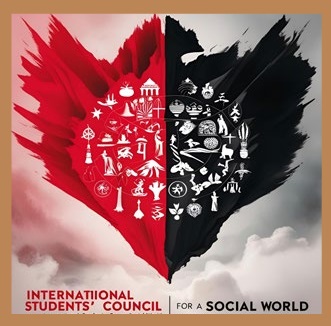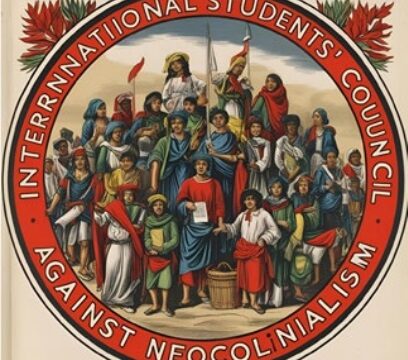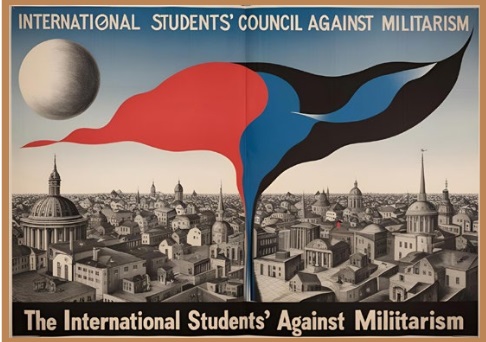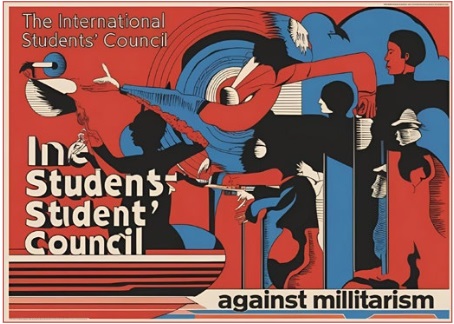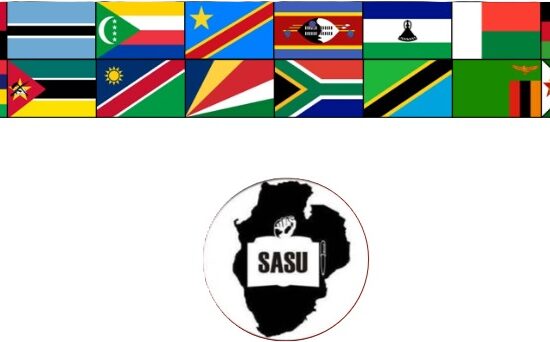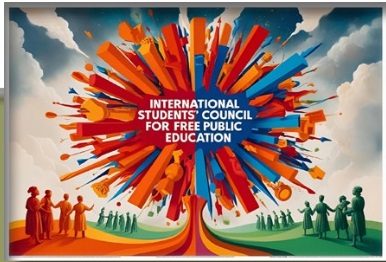Bertin BANDIANGOU
Synergie des Élèves et Étudiants du TOGO
picture source: Created with AI
In the face of the growing challenges faced by students internationally – inequalities in access to education, economic pressures or the risk of political repression – the creation of an International Student Council is a necessity. This initiative aims to unite student voices to defend their rights, promote transnational solidarity and influence educational policies. Here are the structuring axes of this proposal.
1. Objectives: An independent platform at the service of students
The ISC would position itself as an independent and representative organization, whose core mission would be to protect the rights of students while stimulating their empowerment. Its objectives would be broken down into five priorities:
Defend the academic, economic and political rights of students, particularly in the face of discrimination, abusivetuition fees or libertarian restrictions.
Strengthen intercultural exchanges: create spaces for dialogue and collaborative projects between global student communities and participate in the capacity building of student organizations in countries with strong repression.
Advocate for inclusive education, fighting against access barriers and demanding reforms for quality education.
Establish a structured dialogue with academic institutions and governments, in order to influence decisions affecting youth.
Encourage empowerment, through leadership, entrepreneur ship and transversal skills training programs.
2. Structure: An inclusive and transparent student democracy
To guarantee its legitimacy: the ISC would be based on a democratic architecture, combining geographical representativeness and participatory decision-making processes:
To guarantee its legitimacy, the ISC would be based on a democratic architecture, combining geographical representativeness and participatory decision-making processes:
Balanced representation: Continental and national delegates would be elected to carry regional specificities (e.g. the challenges of African students in the face of visa fees, or the challenges of Asian students facing academic censorship).
An elected executive council: In charge of strategic orientations, it would be renewed regularly through a ballot open to all members.
Collective validation of major decisions: The main orientations (budget, international campaigns) would be submitted to the vote of the General Assembly, composed of representatives from each member country.
Ongoing consultations: Surveys, online forums and town halls would ensure a constant connection with the student base.
4. Key issues: Independence, innovation and solidarity:
Several fundamental principles should guide the ISC to guarantee its effectiveness and credibility:
– Absolute independence: Financing via student fees and citizen donations, in order to avoid any state or corporate interference.
– Protective legal framework: An international charter, recognized by institutions such as the UN or UNESCO, to secure members in the face of repressive regimes.
– Digital lever: Collaborative platforms, transnational webinars and viral campaigns (hashtags, video testimonials) to mobilize at scale.
– Contingency Fund: Financial and legal support for students in exile, victims of repression or facing abusive exclusion.
– Media Partnerships: Collaborate with international media to amplify demands.
Conclusion:
The International Student Council embodies the hope of a generation determined to make education a common, non-market good accessible to all. By federating energies, defending the voiceless and innovating through dialogue, this structure could become a key player in the struggles of the twenty-first century.
„The ISC, by students, for students — and for the future“



